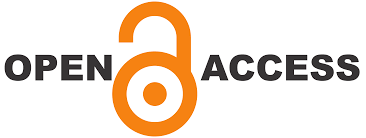Cultivating Digital Fluency in Schools: Challenges and Sustainable Solutions
Keywords:
Digital Fluency, Educational Technology, Equity, Teacher Training, Policy ImplementationAbstract
This study examines the integration of digital fluency in educational systems through an integrative model combining technical, pedagogical, and equitable access dimensions. Using a narrative literature review of interdisciplinary sources (2020–2025), the research identifies key challenges: infrastructure gaps, pedagogical misconceptions (e.g., the "digital native" myth), and policy fragmentation. Findings highlight successful global practices, including 1:1 device program with offline capabilities (Uruguay), TPACK-based teacher training (South Korea), and community partnerships (Portugal). The proposed model emphasizes aligning DigComp 2.2 frameworks with localized strategies to address disparities, particularly in resource-constrained settings. Results demonstrate that holistic approaches, combining infrastructure investment, transformative pedagogy, and inclusive policies are essential for developing ethical, critical, and creative digital competencies. The study contributes actionable insights for policymakers and educators to bridge the digital fluency gap in diverse contexts.
Downloads
References
Adipat, S., Chotikapanich, R., Laksana, K., Busayanon, K., Piatanom, P., Ausawasowan, A., & Elbasouni, I. (2023). Technological Pedagogical Content Knowledge for Professional Teacher Development. Academic Journal of Interdisciplinary Studies, 12(1). https://doi.org/10.36941/ajis-2023-0015
Altamimi, A., Al-Bashayreh, M., Al-Oudat, M., & Almajali, D. (2022). Blockchain technology adoption for sustainable learning. International Journal of Data and Network Science, 6(3). https://doi.org/10.5267/j.ijdns.2022.1.013
Amin, A. Muh., Adiansyah, R., & Hujjatusnaini, N. (2023). The Contribution of Communication and Digital Literacy Skills to Critical Thinking. Jurnal Pendidikan Sains Indonesia, 11(3). https://doi.org/10.24815/jpsi.v11i3.30838
Arantes, J. (2022). The SAMR model as a framework for scaffolding online chat: a theoretical discussion of the SAMR model as a research method during these “interesting” times. Qualitative Research Journal, 22(3). https://doi.org/10.1108/QRJ-08-2021-0088
Bili, S., Suparmi, S., & Sarwanto, S. (2022). Problem-based Learning: Improving Students’ Concept Mastery and Learning Activities. Journal of Educational Science and Technology (EST), 8(1). https://doi.org/10.26858/est.v8i1.21970
Bush, T. (2019). Professional learning communities and instructional leadership: A collaborative approach to leading learning? In Educational Management Administration and Leadership (Vol. 47, Issue 6). https://doi.org/10.1177/1741143219869151
Cervera, M. G., & Caena, F. (2022). Teachers’ digital competence for global teacher education. European Journal of Teacher Education, 45(4), 451–455. https://doi.org/10.1080/02619768.2022.2135855
Cezarotto, M. (2023). Guiding principles towards inclusive design: research notes for meaningful change. InfoDesign, 20(2). https://doi.org/10.51358/id.v20i2.1093
Cosby, A., Fogarty, E. S., & Manning, J. (2023). Digital Literacy and Digital Self-Efficacy of Australian Technology Teachers. Education Sciences, 13(5). https://doi.org/10.3390/educsci13050530
Cresencio, M. (2023). Outcome-based education in open and distance learning. Journal of Education and E-Learning Research, 10(4). https://doi.org/10.20448/jeelr.v10i4.5043
De Quincey, E., Kyriacou, T., Briggs, C., & Waller, R. (2019). Student centred design of a learning analytics system. ACM International Conference Proceeding Series. https://doi.org/10.1145/3303772.3303793
Dias-Trindade, S., & Ferreira, A. G. (2020). Digital teaching skills: Digcompedu checkin as an evolution process from literacy to digital fluency. Icono14, 18(2). https://doi.org/10.7195/RI14.V18I2.1519
Ezra, O., Cohen, A., Bronshtein, A., Gabbay, H., & Baruth, O. (2021). Equity factors during the COVID-19 pandemic: Difficulties in emergency remote teaching (ert) through online learning. Education and Information Technologies, 26(6). https://doi.org/10.1007/s10639-021-10632-x
Fatqurhohman, F. (2025). Transformasi Kepemimpinan Pendidikan Era VUCA: Strategi Menuju Institusi Unggul dan Adaptif. CV. Ihsan Cahaya Pustaka. ihsancahayapustaka.id
Foster, B., Mihailidis, P., Johnson, P. R., Burth, S., Tully, M., Ramasubramanian, S., & Riewestahl, E. (2024). Designing equitable media literacy interventions for critical youth agency. Global Studies of Childhood, 14(4). https://doi.org/10.1177/20436106231208445
Foster, N., & Piacentini, M. (2023). OECD Innovating Assessments to Measure and Support Complex Skills. OECDPublishing. https://doi.org/10.1787/e5f3e341-en
Frison, D. (2023). Higher Education in Post-Covid19: The Digital Transformation of Work-Integrated Learning Programmes. https://doi.org/10.36253/979-12-215-0151-3.22
Fulgence, S., Kwabi, F., Boateng, A., Hu, W., & Paudyal, K. (2023). Cross-country analysis of the effects of political uncertainty on stock price informativeness. Journal of International Financial Markets, Institutions and Money, 88. https://doi.org/10.1016/j.intfin.2023.101829
Gagne, R. M., & Briggs, L. J. (2020). Principles of Intructional Design (4th Edition). In Japan’s High Schools.
Gougeon, L., & Cross, J. S. (2021). Computational Fluency and the Digital Divide in Japanese Higher Education. 29th International Conference on Computers in Education Conference, ICCE 2021 - Proceedings, 1.
Hadi, A. (2018). Bridging Indonesia’s Digital Divide: Rural-Urban Linkages? Jurnal Ilmu Sosial Dan Ilmu Politik, 22(1). https://doi.org/10.22146/jsp.31835
Handayani, N. D., Mantra, I. B. N., & Suwandi, I. N. (2019). Integrating collaborative learning in cyclic learning sessions to promote students’ reading comprehension and critical thinking. International Research Journal of Management, IT and Social Sciences, 6(5). https://doi.org/10.21744/irjmis.v6n5.777
Hartina, A. W., Wahyudi, & Permana, I. (2022). Dampak Problem Based Learning Untuk Meningkatkan Keterampilan Kolaborasi dalam Pembelajaran Tematik. Journal of Education Action Research, 6(3).
Helsper, E. J., & Eynon, R. (2010). Digital natives: Where is the evidence? British Educational Research Journal, 36(3). https://doi.org/10.1080/01411920902989227
Howson, C. K., & Kingsbury, M. (2023). Curriculum change as transformational learning. Teaching in Higher Education, 28(8). https://doi.org/10.1080/13562517.2021.1940923
Huang, C.-W. (2022). Book Review: Multimodal Literacies Across Digital Learning Contexts. Multimodality & Society, 2(4). https://doi.org/10.1177/26349795221126802
Huang, Z., Fey, M., Liu, C., Beysel, E., Xu, X., & Brecher, C. (2023). Hybrid learning-based digital twin for manufacturing process: Modeling framework and implementation. Robotics and Computer-Integrated Manufacturing, 82. https://doi.org/10.1016/j.rcim.2023.102545
Hunter, N., Brabazon, T., & Quinton, J. (2022). Beyond the STEM Comfort Zone: Activating Disciplinary Literacy to Enable Student Success Through Diversity. International Journal of Social Sciences & Educational Studies, 9(4). https://doi.org/10.23918/ijsses.v9i4p211
Indah, R. N., Toyyibah, Budhiningrum, A. S., & Afifi, N. (2022). The research competence, critical thinking skills and digital literacy of indonesian efl students. Journal of Language Teaching and Research, 13(2). https://doi.org/10.17507/jltr.1302.11
Johan, Kartono, R., Hamsal, M., & Furinto, A. (2023). The influence of Creative & Critical Thinking and Collaboration on Digital & Technology Fluency. E3S Web of Conferences, 426. https://doi.org/10.1051/e3sconf/202342602144
Katawazai, R. (2021). Implementing outcome-based education and student-centered learning in Afghan public universities: the current practices and challenges. Heliyon, 7(5). https://doi.org/10.1016/j.heliyon.2021.e07076
Kim, D., & Ryoo, D. (2023). Learning Techniques Using Study With Me: Focus on Motivational Orientations, Learning Competency, and Digital Literacy. IEEE Access, 11. https://doi.org/10.1109/ACCESS.2023.3312555
Kusmulyono, M. S. (2023). Collaborative Youth Action to Alleviate Digital Inequality in Rural Areas in Indonesia. In Sustainable Development and the Digital Economy: Human-centricity, Sustainability and Resilience in Asia. https://doi.org/10.4324/9781003388753-5
Lasaiba, M. A., & Lasaiba, D. (2023). Enhancing Process Skills and Learning Outcomes: A Comparative Study of the Treffinger Learning Model. Journal of Innovative Science Education, 12(2). https://doi.org/10.15294/jise.v12i2.64723
Lazar, I. M., Panisoara, G., & Panisoara, I. O. (2020). Digital technology adoption scale in the blended learning context in higher education: Development, validation and testing of a specific tool. PLoS ONE, 15(7 July). https://doi.org/10.1371/journal.pone.0235957
Lee, J. H., & Lee, H. (2023). The role of learners’ socioeconomic status and perception of technology use in their second language learning motivation and achievement. Language Awareness, 32(2). https://doi.org/10.1080/09658416.2021.2014510
Margaryan, A., Littlejohn, A., & Vojt, G. (2011). Are digital natives a myth or reality? University students’ use of digital technologies. Computers and Education, 56(2). https://doi.org/10.1016/j.compedu.2010.09.004
McCarthy, A. M., Maor, D., McConney, A., & Cavanaugh, C. (2023). Digital transformation in education: Critical components for leaders of system change. Social Sciences and Humanities Open, 8(1). https://doi.org/10.1016/j.ssaho.2023.100479
Meirbekov, A., Maslova, I., & Gallyamova, Z. (2022). Digital education tools for critical thinking development. Thinking Skills and Creativity, 44. https://doi.org/10.1016/j.tsc.2022.101023
Molin, L., & Godhe, A. L. (2020). Students’ critical analyses of prominent perspectives in a digital multimodal text. Nordic Journal of Digital Literacy, 15(3). https://doi.org/10.18261/issn.1891-943x-2020-03-02
Murray, N. (2022). A model to support the equitable development of academic literacy in institutions of higher education. Journal of Further and Higher Education. https://doi.org/10.1080/0309877X.2022.2044019
Muslimin, A. I., Mukminatien, N., & Ivone, F. M. (2023). TPACK-SAMR Based Lecturers’ Digital Literacy Competence and Its Implementation in EFL Classroom. CALL-EJ, 24(3).
Mwesiga, A., & Masulu, J. (2020). Effectiveness of school headship and teachers’ commitment in Kagera Region, Tanzania. International Journal of Contemporary Applied Researches, 2(1).
Ni`mah, I., Suntarti, N., & Tawar. (2022). Literasi Digital untuk Guru di Era Society 5.0. International Journal of Disabilities and Social Inclusion, 2(1).
Purnama, S., Ulfah, M., Ramadani, L., Rahmatullah, B., & Ahmad, I. F. (2022). Digital Storytelling Trends in Early Childhood Education in Indonesia: A Systematic Literature Review. JPUD - Jurnal Pendidikan Usia Dini, 16(1). https://doi.org/10.21009/jpud.161.02
Purwanto, E., Bachtiar, D., Septiani, K. M., Ridhwan, N., Deviny, J., Dahlan, K. S. S., Susanto, D. A., & Marey, D. R. E. (2020). Technology Adoption A Conceptual Framework. In Yayasan Pendidikan Philadelphia.
Rahayu, I. M. P., Nasution, N., & Mustaji, M. (2023). Development of Digital Student Worksheets with the Discovery Learning Model to Improve Collaboration Skills and Results for Elementary School Students: Literature Review. International Journal of Emerging Research and Review, 1(4). https://doi.org/10.56707/ijoerar.v1i4.54
Reddy, P., Sharma, B., & Chaudhary, K. (2020). Digital literacy: A review of literature. In International Journal of Technoethics (Vol. 11, Issue 2). https://doi.org/10.4018/IJT.20200701.oa1
Saimon, M., Lavicza, Z., & Dana-Picard, T. (Noah). (2023). Enhancing the 4Cs among college students of a communication skills course in Tanzania through a project-based learning model. Education and Information Technologies, 28(6). https://doi.org/10.1007/s10639-022-11406-9
Sanches, T. (2022). Digital fluency and ethical use of information: the role of higher education librarians. Qualitative and Quantitative Methods in Libraries (QQML), 11.
Selwyn, N., Hillman, T., Eynon, R., Ferreira, G., Knox, J., Macgilchrist, F., & Sancho-Gil, J. M. (2020). What’s next for Ed-Tech? Critical hopes and concerns for the 2020s. In Learning, Media and Technology (Vol. 45, Issue 1). https://doi.org/10.1080/17439884.2020.1694945
Smith, C. (2020). Transforming Schools: Creativity, Critical Reflection, Communication, Collaboration. Literacy Learning: The Middle Years, 28(3).
Spanakis, P. (2024). Measuring the digital divide among people with severe mental ill health using the essential digital skills framework. In Perspectives in Public Health (Vol. 144, Issue 1). https://doi.org/10.1177/17579139221106399
Spurlock, K. R. (2023). Review of Learning styles, classroom instruction, and student achievement. Education Review, 30. https://doi.org/10.14507/er.v30.3713
Sulasteri, S., Suharti, Amri, M., Halimah, A., & Kusumayanti, A. (2020). The effect of Kumon learning model on mathematics learning outcomes in cognitive style view. Journal of Physics: Conference Series, 1581(1). https://doi.org/10.1088/1742-6596/1581/1/012052
Sumardi, N. A., & Kristina, D. (2020). Digital native students’ perceived competence on digital literacy: A study of digital native students at a private Islamic junior high boarding school. AKSARA: Jurnal Bahasa Dan Sastra, 21(1). https://doi.org/10.23960/aksara/v21i1.pp74-87
Suntarti, N., Negeri, S., & Negeri Karangsumber, S. (2022). Literasi Digital untuk Guru di Era Society 5.0. International Journal of Disabilities and Social Inclusion, 2(01).
Syarifah, Z. A., & Yanuarto, W. N. (2023). Eksplorasi Pembelajaran Matematika Berbasis TPACK. Proximal: Jurnal Penelitian Matematika Dan Pendidikan Matematika, 6(2). https://doi.org/10.30605/proximal.v6i2.2722
Tan, L., Thomson, R., Koh, J. H. L., & Chik, A. (2023). Teaching Multimodal Literacies with Digital Technologies and Augmented Reality: A Cluster Analysis of Australian Teachers’ TPACK. Sustainability (Switzerland), 15(13). https://doi.org/10.3390/su151310190
Tóth, T., Virágh, R., Hallová, M., Stuchlý, P., & Hennyeyová, K. (2022). Digital Competence of Digital Native Students as Prerequisite for Digital Transformation of Education. International Journal of Emerging Technologies in Learning, 17(16). https://doi.org/10.3991/ijet.v17i16.31791
Tunjera, N., & Chigona, A. (2020). Teacher Educators’ Appropriation of TPACK-SAMR Models for 21st Century Pre-Service Teacher Preparation. International Journal of Information and Communication Technology Education, 16(3). https://doi.org/10.4018/IJICTE.2020070110
Ulfa, R., Habiddin, H., & Utomo, Y. (2021). Interactive Instructional: Theoretical Perspective and Its Potential Support in Stimulating Students’ Higher Order Thinking Skills (HOTS). J-PEK (Jurnal Pembelajaran Kimia), 6(1). https://doi.org/10.17977/um026v6i12021p001
Van Audenhove, L., Vermeire, L., Van den Broeck, W., & Demeulenaere, A. (2024). Data literacy in the new EU DigComp 2.2 framework how DigComp defines competences on artificial intelligence, internet of things and data. Information and Learning Science, 125(5–6). https://doi.org/10.1108/ILS-06-2023-0072
Vuorikari, R., Kluzer, S., & Punie, Y. (2022). DigComp 2.2. The Digital Competence Framework for Citizens. With new examples of knowledge, skills and attitudes. In Publications Office of the European Union (Issue KJ-NA-31006-EN-N (online),KJ-NA-31006-EN-C (print)).
Wachidah, L. R. (2023). Pemanfaatan Digitalisasi sebagai Penguatan Pendidikan Karakter dalam Pembelajaran Bahasa Indonesia pada Era Society 5.0. GHANCARAN: Jurnal Pendidikan Bahasa Dan Sastra Indonesia. https://doi.org/10.19105/ghancaran.vi.11753
Zhang, Z., Cao, T., Shu, J., & Liu, H. (2022). Identifying key factors affecting college students’ adoption of the e-learning system in mandatory blended learning environments. Interactive Learning Environments, 30(8). https://doi.org/10.1080/10494820.2020.1723113
Downloads
Published
Data Availability Statement
All data generated or analyzed during this study are included in this published article. Additional datasets are available from the corresponding author upon reasonable request.
Issue
Section
License
Copyright (c) 2025 Anwar Dzikrullah, Fatimah Ramadhani, Prastio Efendi, Monoko Haguchi (Author)

This work is licensed under a Creative Commons Attribution-ShareAlike 4.0 International License.













